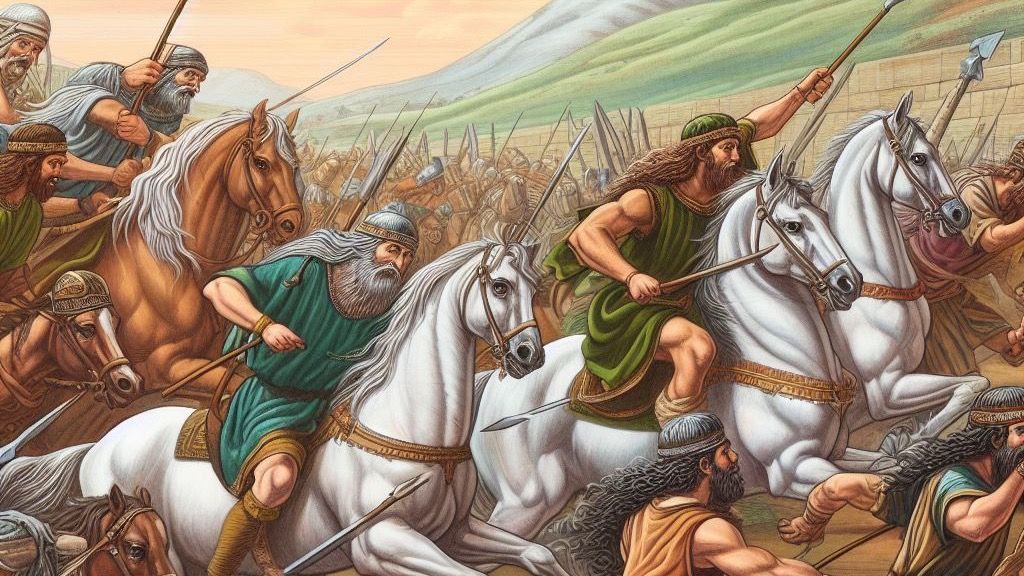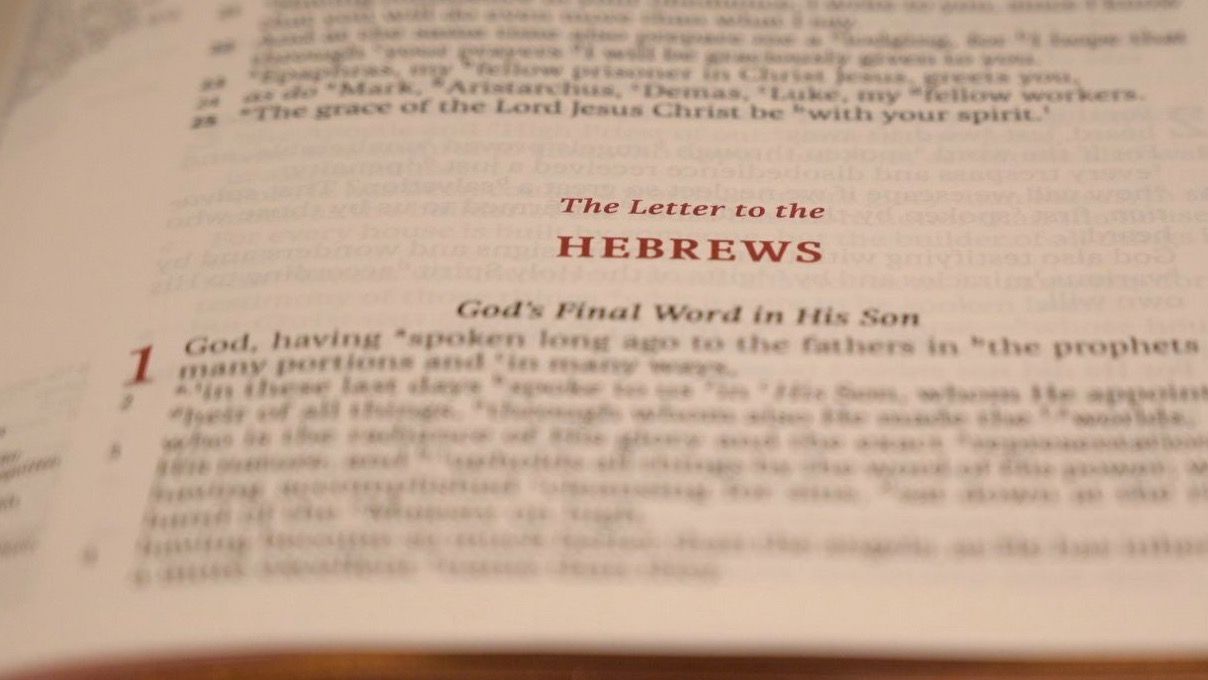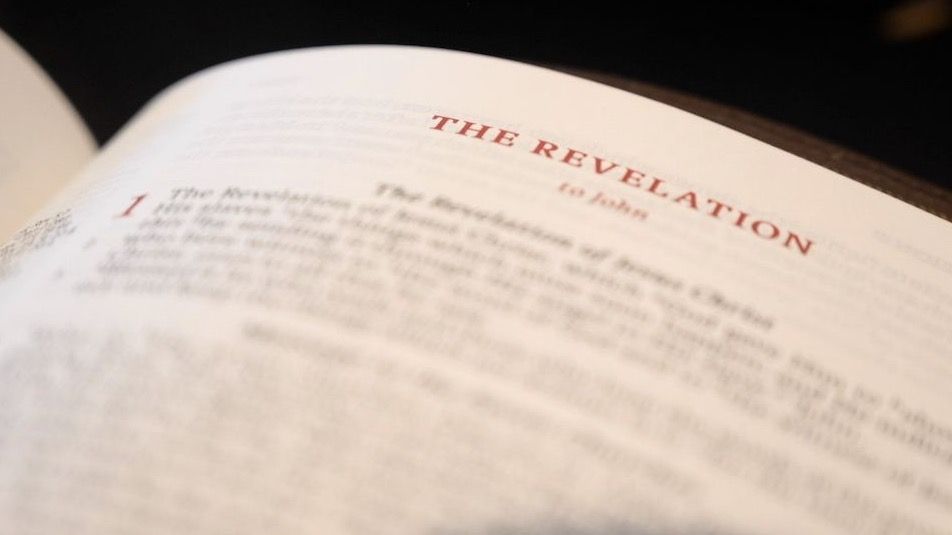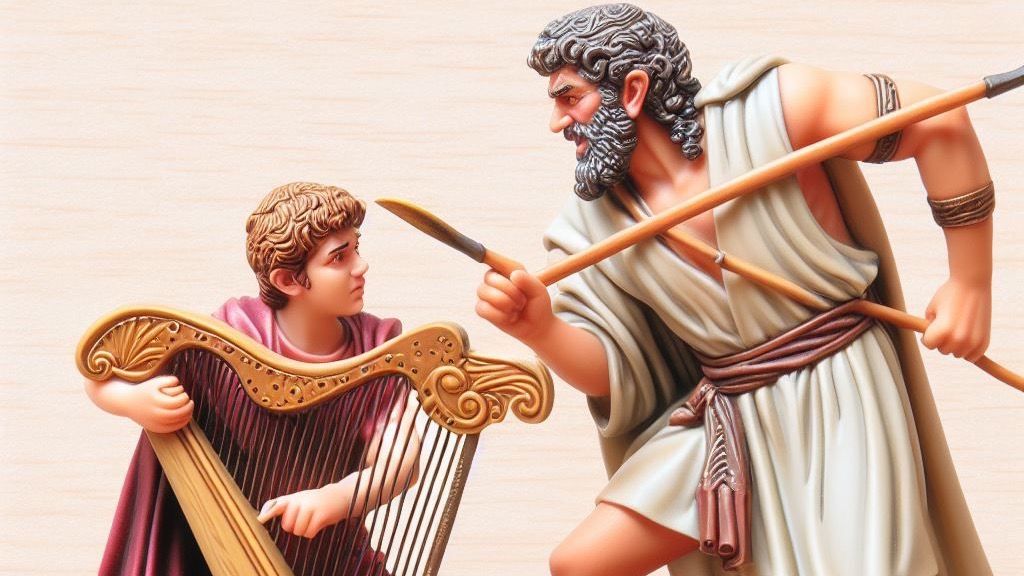When Yahweh handed David victory over Goliath, we learn that God's servant volunteers, prepares, speaks, prevails, and inspires.
0. Introduction
Turn your Bibles with me to the book of 1 Samuel. Today's passage is 1 Samuel 17:31–58. The title of today’s lesson is “David and Goliath (Part 2): The Battle Is the LORD’S” Read 1 Samuel 17:31–58.
Last week, we covered part one of the story of David and Goliath. We saw Goliath’s defiance, David’s dedication, David’s decisiveness, and Eliab’s denunciation.
David heard Goliath’s defiant words, and he saw Israel’s fear.. He kept asking his fellow soldiers, ”(1) What is the reward for striking down Goliath and (2) who is this uncircumcised Philistine that he should defy the living God? Saul feared he was too old to fight the giant. Jonathan was the crown prince, so he may have felt his life was too valuable to risk losing. Eliab, David’s eldest brother, seeing his youngest brother lingering around with the other soldiers, rebukes David.In the KJV in verse 29, David responds, “What have I now done? Is there not a cause?”
In other words, is this not a cause worth defending. This uncircumcised Philistine is persistently mocking God This is an important matter. This is a cause worth fighting.So in verse 30, David continues to implore the people, hoping to draw interest and inspire courage in the other troops. [Hoffner, ECC]
But every single person was indifferent and afraid. No one seemed willing to volunteer.1. God's Servant Volunteers (v.31–37)
Then the words which David spoke were heard. And they told them to Saul, and he sent for him. (v.31)
The biblical text does not indicate who had heard David’s words. [UBSH] The focus in verse 31 is David’s words. David was overheard by nearly everybody. David’s words were so foreign, so different, so shocking that people reported this to Saul. The people told Saul, “There is a man who is fixated on your reward for fighting the Philistine champion, and he is trying to persuade someone to fight for us.” Saul hears this. No volunteer came forward for 40 days. So hearing this news, Saul summoned David.David witnessed the people's unanimous terror and discouragement, and David’s conviction grew. I will be that man.
It’s as if David heard the Spirit of Yahweh asking, “Whom shall I send, and who will go for Us?” David, as he is escorted to King Saul, resolved in his heart, “Here am I. Send me!”[So] David said to Saul, “Let no man’s heart fail on account of [Goliath]; your servant will go and fight with this Philistine.” (v.32)
David could not lie still while the Israelites were losing heart. Yet David showed humility. He addresses himself as Saul’s servant. And like Joshua and Caleb in Numbers 13–14 when they saw the giants in Canaan, David showed courage. “I will go and fight with this Philistine.”Saul dismisses his first volunteer to fight Goliath.
“You can’t fight him. You are but a youth.” Saul evaluated the externals. David was a teenager. This is like pinning a local high school wrestler against a 3-time Olympic champion. David is overmatched. He can’t win.David responds by giving his credentials.
David’s Credentials (v.34–36)
Your servant was shepherding his father’s sheep. And a lion and a bear would come and take a lamb from the flock, and I would go out after it and strike it and rescue the lamb from its mouth…I would seize it by its beard and strike it down and put it to death. Your servant has struck down both the lion and the bear; and this uncircumcised Philistine will be like one of them. (v.34–36a)
Wild animals (lions and bears) were often a threat to lambs in Israel during this time. The lamb’s only defense was the shepherd’s ability to fight. One person killing a lion and a bear with one’s hands is impressive. Syrian brown bears are smaller than grizzly bears, but they can still weigh over 500 pounds (250 kg). In 2 Kings 2:23–25, two bears mauled 42 young teenagers. Asiatic lions weighed 100 to 160 kg (250 to 350 pounds). Samson, in Judges 14, single-handedly killed a lion with his hands.But if his own credentials weren’t enough, second, David gives God’s credentials.
God’s Credentials (v.37)
And David said, “Yahweh, who delivered me from the hand of the lion and from the hand of the bear, He will deliver me from the hand of this Philistine.” (v.37a)
David acknowledged God’s past provision.
At first, David gives his own credentials. “I struck down the lion and the bear.” But now David credits God.Looking back at God’s deliverance, David trusts in God’s future provision.
“He will deliver me from the hand of this Philistine.”Application:
We can follow David’s example. So often we forget God’s blessings and how God has guided, protected, and provided for us. The God who provided for David is the same God who watches over you today. We can have confidence that all things work together for good, for those who are called according to His purpose. Like Abraham, like Habakkuk, like the apostle Paul, each of us can live by faith.—-
David wrote Psalm 23. “Yahweh is my shepherd. I shall not want.”
David tells Saul, “I rescued the sheep, but God rescued me. And now, God will rescue his flock, the people of Israel.” [CSBSB]
So Saul agrees to let David fight, and he give David the benediction, “May Yahweh be with you.”
2. God's Servant Prepares (v.38–40)
Even though as Christians, we trust in God, that does not nullify our responsibility to do our homework and to prepare.
Saul spares nothing to prepare David. (v.37–38a)
He clothed David with his personal robes and armor, and a bronze helmet. He gives David his best sword. He equips David with weaponry similar to that of Goliath. [RSB]David walks around, not accustomed to wearing this much armor.
So David says, “I cannot go with these, for I have not tested them.” (v.39) And David takes off the armor and weapons.David then relies on the weapons he is most familiar as a shepherd.
Shepherd’s staff Benaiah killed a lion by himself with a similar staff in 2 Samuel 23:20. [MSB] Stones These five smooth sones David had chosen would have been roughly the size of tennis balls and would fly straighter than jagged stones. [CSBSB] Sling Shepherds like David would train to develop proficiency with a sling.David was a skilled musician, lyricist, and psalmist. But David’s most important life skill was being a shepherd.
There is no doubt David was second to none in his ability to use a shepherd’s staff, stones, and sling. David was prepared. David was ready.Application:
By working hard to develop skills through the talents and opportunities God has given us, we prepare ourselves to be used by God for His glory. Are you preparing and cultivating your skills and giftedness to serve God and others?3. God's Servant Speaks (v.41–47)
Before David speaks, he observes and he listens.
It’s 1-on-2. It’s David vs. Goliath and his shield-bearer. Goliath approached David, and as he drew closer, Goliath cannot believe his eyes.“[Goliath] despised [David].” (v.42b)
“disdained David” [ESV] “was sneering in contempt” [NLT] “made fun of David” [CEV] He considered David worthless. [USBH] David was not a worthy opponent.Illustration:
It would be Magnus Carlsen, the best chess player in the world today, issuing a challenge to play chess against the best American player. And we send one of our teenagers to play him. Carlsen would be insulted. It would not be a fair contest. Goliath was insulted, offended. This teenaged boy is not a worthy opponent.“Am I a dog, that you come to me with sticks?” (v.43a)
And unlike modern day United States, during this time and culture, dogs were despicable animals.“The Philistine cursed David by his gods.” (v.43b)
Goliath is calling his gods (plural), asking them to inflict harm on David. This battle was never about just one champion pitted against another. The confrontation is between the Philistines’ lifeless gods and Israel’s Living God.This is why it mattered to David. This is why David stood up.
Goliath had sapped the heart and courage of God’s people, and Goliath is trampling over the honor and glory of the living God.After observing and listening to Goliath, David finally speaks.
You come to me with a sword, a spear, and a javelin, but I come to you in the name of Yahweh of hosts, the God of the battle lines of Israel, whom you have reproached.” (v.45)
Goliath came with a sword, spear, and javelin. David came in the “name of Yahweh of hosts.”
When David said he came in the “name of,” David meant he was acting as the representative of God. David came with the authority of God. “For Yahweh your God is the one who goes with you, to fight for you against your enemies, to save you.” (Deut 20:4)David continued, "This day Yahweh will deliver you up into my hands, and I will strike you down and remove your head from you. And I will give the dead bodies of the camp of the Philistines this day to the birds of the sky and the beasts of the earth, that all the earth may know that there is a God in Israel." (v.46)
David is full of confidence. He is so consumed with God.
God will deliver Goliath into David's hands. God will help David strike Goliath down. God will present Goliath's body to the birds in the sky. God will show all the earth the God in Israel is the one true God.David said, "And that all this assembly may know that Yahweh does not save by sword or by spear; for the battle is Yahweh’s and He will give you into our hands.” (v.47)
David wanted God’s people to know Yahweh is the true God, and the battle is the LORD’S.
It is similar to the confrontation between Elijah and the 450 prophets of Baal at Mount Carmel. Who will bring fire down from heaven to consume the burnt offering. The 450 false prophets called on Baal all day into the evening. No fire.[Then] Elijah said, “O Yahweh, today let it be known that You are God in Israel and that I am Your slave…Answer me that this people may know that You, O Yahweh, are God…Then the fire of Yahweh fell and consumed the burnt offering…And all the people saw it and fell on their faces and said, “Yahweh, He is God; Yahweh, He is God.” (1 Kings 18:36–39)
Application:
We need to prepare and do our part in the Christian life. We need to “work out our salvation with fear and trembling.” (Phil 2:12b) At the same time, the battle is the LORD’S. “For it is God who is at work in you, both to will and to work for His good pleasure.” (Phil 2:13) So often, God will place us in a position of weakness so His glory is highlighted.Paul said, "Most gladly, therefore, I will rather boast in my weaknesses, so that the power of Christ may dwell in me. Therefore, I am well content with weaknesses...and hardships, for the sake of Christ, for when I am weak, then I am strong." (2 Cor 12:9b–10)
4. God's Servant Prevails (v.48–51)
“David ran quickly toward the battle line to meet the Philistine.” (v.48b)
Notice David’s audacity and confidence. In boxing, when the round starts, the boxers usually have their guards up and approach methodically and carefully before throwing the first punch. David doesn't hesitate. He runs toward Goliath.“David sent his hand down into his bag and took from it a stone and slung it and struck the Philistine on his forehead. And the stone sank into his forehead, so that he fell on his face to the ground.” (v.49)
Somehow Goliath was exposed despite his shield bearer assigned to protect Goliath from any projectile. The stone strikes Goliath in the forehead. The stone was slung by David, but the battle is the LORD’S.The stone's fatal blow to Goliath's head was the work of God.
If Goliath was facing forward looking at David, the impact of the stone should have knocked Goliath backwards, and the back of Goliath’s head, obeying Newtonian law of physics, would have made contact with the ground. But instead, like the Philistine’s false god Dagon in 1 Samuel 5, Goliath fell on his face to the ground.To “fall facedown” is to show respect to superiors and was the position used to worship God. [CSBSB]
”Then Moses and Aaron came in…to the doorway of the tent of meeting and fell on their faces. Then the glory of Yahweh appeared to them.” (Num 20:6) “Joshua tore his clothes and fell to the earth on his face before the ark of Yahweh.” (Josh 7:6) Goliath refused to show God respect, but at the end of Goliath’s life, God caused Goliath to fall on his face to the ground.Implication:
Do you know that all Christians and non-Christians will bow before our Lord Jesus Christ. “So that at the name of Jesus every knee will bow, of those who are in heaven and on earth and under the earth, and that every tongue will confess that Jesus Christ is LORD, to the glory of God the Father.” (Phil 2:10–11) which is Paul quoting from Isaiah 45:23. ”I have sworn by Myself, the word has gone forth from My mouth in righteousness and will not turn back, that to Me every knee will bow, every tongue will swear allegiance.” (Is 45:23) Like Goliath, every single person will fall prostrate on their faces to the ground. All will swear allegiance and confess Jesus is Lord. Will you confess Jesus is Lord and worship Him today, or will you wait until the final judgment day to bow the knee to Jesus and be condemned to hell.5. God's Servant Inspires (v.52–58)
Remember the army of Israel retreating when Goliath started to climb up the ravine toward them, cowering in fear. Look what they do now.
But the men of Israel and Judah arose and shouted and pursued the Philistines as far as the valley and to the gates of Elkon. (v.52)
They shouted.
It was a shout of mutual encouragement. It was a battle cry intending to frighten the enemy. We’ll not afraid anymore.The Israelites then pursued the Philistines
They chased them all the way back to Gath and Ekron. Gath was perhaps 15 km west of the battlelines, and Ekron was another 10 km north of Gath. After they returned from their pursuit, they plundered the Philistine camps.“And David took the Philistine’s head and brought it to Jerusalem.” (v.54)
Don’t miss this detail. Jerusalem is NOT under Israel’s control at this time. It is under the control of the Jebusites. So David, instead of going back to Bethlehem or north to Gibeah, parades the head of Goliath in front of the Jebusites. David was announcing to the Jebusites that the God of Israel is victorious. The battle is the LORD'S, and Yahweh’s army has defeated Goliath and the Philistines.Application:
Christians do not need a high formal position to influence people. When you are faithful, when you trust in God in the midst of dire circumstances, God will use you to influence and inspire others. That is why it is so helpful for us to read good Christian biographies and learn from other godly men and women who preceded us. It's also important that we choose our friends wisely. Surround yourselves with godly people that will encourage you when you feel timid and weak.Conclusion:
It is improbable that God will ask you to decapitate someone for defying God. God’s calling for us today is different. We, as God’s ambassadors, are called to preach the gospel. It is the gospel that is the power of God for salvation for God's enemies who remain defiant. We cannot be indifferent. We cannot be afraid. We cannot be silent. When we appreciate and savor God’s saving grace, He will compel us to speak, love, and act. Every knee will bow, and every tongue will confess that Jesus is Lord on that final day. We want to inspire each other to share the gospel so that others might worship Christ Jesus today and not wait until the final judgment day.











